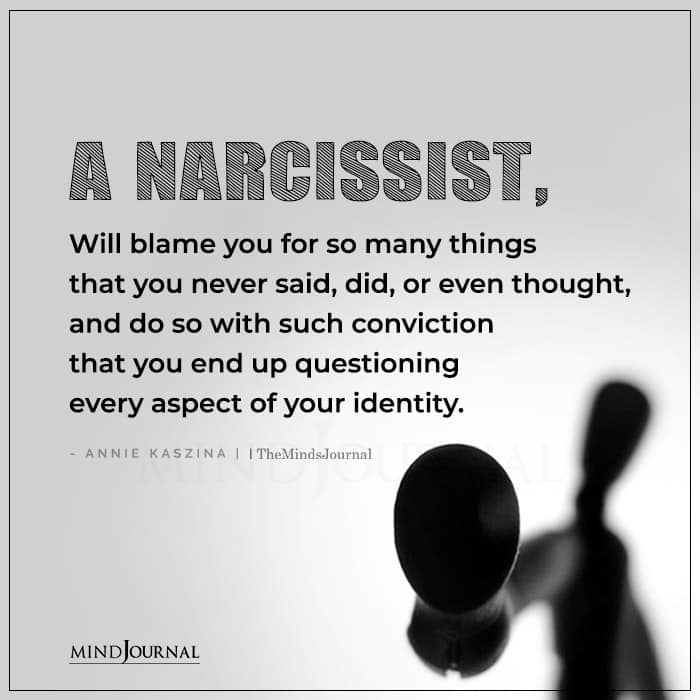Whether it’s the charmers stealing the spotlight, the sly manipulators pulling strings, or the raging ones destroying your self-esteem, understanding these different types of narcissists sheds light on the diverse spectrum of narcissistic traits.
KEY POINTS
- Narcissists lack empathy, insight, accountability, and the capacity to consider a partner’s perspective if it differs.
- The funny narcissist treats every problem in a relationship like it is a joke, including his or her loved one’s feelings.
- The nice narcissist is kinder to strangers then his own loved ones.
- The angry narcissist throws fits of rage then acts like nothing happened.
Most narcissists relate similarly in the context of an interpersonal relationship. They often lack empathy for a loved one yet can occasionally be sympathetic.
Their deficits in insight may prevent them from authentically owning a selfish moment or mistake in the relationship, and the use of deflection and projection often allows them to shift the blame and take the role of victim.
Also, narcissists may not be able to see a loved one’s perspective if it differs from their own. This usually leads to a belief that he or she is always right. Despite these dysfunctional but universal commonalities, narcissists may fall into three distinct categories: funny, nice, and angry.
Related: The 6 Types of Narcissists: How To Spot And Cope With Each Of Them
3 Types of Narcissists
1. The Funny Narcissist
A funny narcissist is typically the “life of the party.” Everyone loves this person because he or she is always up for a good time and routinely makes people laugh. Comical and fun, this narcissist may accrue quite a fan base. This often fuels his or her ego and becomes central to his or her identity.
Although this type of narcissist seems larger than life, he or she may use this persona to camouflage his or her shortcomings in an interpersonal relationship. First, the funny narcissist treats everything as a joke, including his or her partner’s feelings, his or her insensitive and inconsiderate behaviours, and any problem in the relationship.
He or she escapes addressing any relational issue by deeming the partner a “downer.” He or she may often say, “Can’t you be happy? Why do you have to bring everyone down?” He or she labels a partner who attempts to identify and discuss an issue in the relationship as “impossible to please.”
In addition, a loved one who discloses a feeling that is not fun and upbeat is regularly dismissed and then chastised for feeling anything but happy. Thus, real feelings and issues are rarely taken seriously and addressed.
The funny narcissist sidesteps what is displeasing and gives himself or herself a license to do whatever he or she wants, despite the impact on others.
Often this type of narcissist pursues fun things outside of the relationship to avoid a partner who wants to discuss and resolve problems. Always with friends or involved in hobbies, the fun narcissist frequently leaves a partner behind.
For example, Ron and Lisa have been married for 10 years. Ron works long hours and enjoys time with his friends. Lisa calls Ron at work and asks if they can talk about a hurtful comment that Ron made earlier as he was leaving for the office.
Ron says, “It was just a joke! Besides, I can’t tonight because I have plans with my co-workers and then I have a softball game.” Ron returns home after Lisa is asleep and rolls through his next few days in a similar fashion. He fails to circle back and discuss the problem with Lisa.

2. The Nice Narcissist
The nice narcissist may be just as frustrating as the funny narcissist. This is a person who acts differently in public than at home. He or she bends over backward to help a friend, acquaintance, and even a stranger, yet treats loved ones with indifference or disdain.
This discrepancy often causes the people in the narcissist’s private life to feel crazy. It may seem like the entire world views this person as a hero, even though he or she is completely different behind closed doors.
The nice narcissist may continually inflate his or her public image to camouflage a lack of empathy and personal accountability regarding loved ones. Not many people would believe the “nicest guy or gal in the world” is a nightmare at home.
Feelings of guilt and shame also tend to beseech the narcissist’s immediate family members because they often feel as if they should admire the narcissist as the community does.
Experiencing ill will towards the narcissist because he or she is inconsiderate, insensitive, and lacks empathy may seem trivial compared to his or her good deeds out in the world. Yet, this notion may be unhealthy. Emotional mistreatment should never be acceptable.
For example, Amy and Breanna live together. Amy is heavily involved with her church and multiple charities. She also spends time volunteering at an animal rescue agency. Amy reaches out to many of Breanna’s friends to chat and provide a favour if needed.
Yet, at home, Amy refuses to self-reflect and take responsibility for her part in any conflict. She routinely deflects accountability and shifts all of the blame onto Breanna. The fights quickly escalate into screaming matches.
Eventually, Amy withdraws and refuses to speak to Breanna for several days at a time. Amy also acts out passive aggressively by attempting to sabotage Breanna’s projects and friendships.
She contacts Breanna’s friends to broadcast Breanna’s out-of-control temper and neglects to own her part in the escalation. From the outside, Breanna seems like the problem.
Related: How to Deal with a “Kind” Narcissist
3. The Angry Narcissist
Completing the triad is the angry narcissist. This type of narcissist is easily enraged and frequently throws adult temper fits. Anything that does not go his or her way angers this type of narcissist. This is especially apparent when a loved one discloses a feeling that the narcissist does not want to hear.
For example, Rick approaches his wife Janet and says, “I am really worried about Henry. He doesn’t seem happy.” Janet escalates and yells, “What are you saying? Are you calling me a bad mom? I know my son! Henry is fine! You just want to pick on me! You are the one who puts work before family!”
The angry narcissist is ultra-defensive and immediately lashes out with a verbal attack. Although he or she is out of control and says deplorable things to loved ones during a fit of rage, he or she acts as if nothing happened afterward; it’s as if the display of fury is erased from his or her memory. Yet the scars he or she inflicts on others may remain.
This type of narcissist may cause loved ones intense anxiety because they are forced to “walk on eggshells” to avoid setting off the narcissist. The explosions of rage often traumatize family members because the narcissist is cruel. Attempting to predict and evade these episodes often becomes a person’s mission at home.
Yet, living with this type of fear and anticipatory anxiety may take a toll on a person’s mental and physical health.

Although these types of narcissists are slightly different, they share the same dysfunctional ways of relating in a close relationship. In addition, a person may see elements of all three types within one individual.
It may be helpful for a person to seek professional help and support. Living with a person who emotionally mistreats his or her loved ones often impacts a person’s well-being.
References:
Narcissism and perceived power in romantic relationships. Journal of Social and Personal Relationships. 2019. Empathy in Narcissistic Personality Disorder: From Clinical and Empirical Perspectives. Personal Discord. 2014 Narcissism and perspective taking: The mediating effect of need for control. July 2020. Social Behavior and Personality An International Journal. The effect of overt and covert narcissism on self-esteem and self-efficacy beyond self-esteem. October 2015. Personality and Individual Differences
Written By Erin Leonard
Originally Appeared On Psychology Today










Leave a Reply